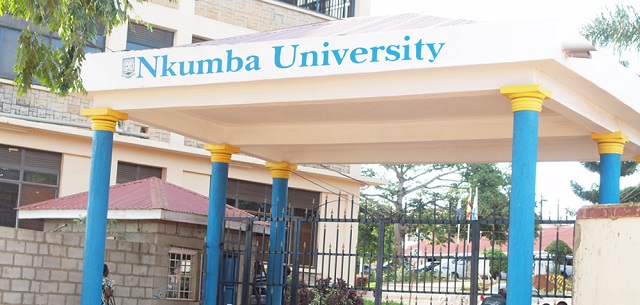
Mbarara, Uganda | THE INDEPENDENT | Lawyer Deusdedit Bwengye has petitioned the High Court seeking orders directing the government to include 13 law teaching universities on three statutory bodies, which make decisions about the progress of the legal profession in the country.
They include Islamic University in Uganda (IUIU), Nkumba University, International University of East Africa (IUEA), Cavendish University, Kampala University (KU), Uganda Pentecostal University (UPU), St. Augustine International University, Uganda Christian University (UCU), Busoga University, Gulu University, Victoria University, Bishop Stuart University (BSU) and Kampala International University (KIU).
According to the suit filed before Mbarara High Court, the applicant wants the universities to have representation on the Law Development Center Management Committee, Law Council, and Committee on Legal Education and Training, all of which are established under the Law Development Center Act, 1970 and Advocates Act of 1970.
In his application before the court, Bwengye says that there are 14 universities in the country accredited to teach Law but only Makerere University sits on the three bodies, which make decisions about the progress of the legal profession in the country.
“I know that under all the three provisions stated above, only Makerere University, and not any other recognized university accredited to teach Law in Uganda, is a member of the said bodies although she’s represented thereon by the Head of her Department or Faculty of Law under the Law Development Centre Act, CAP 132 and the Dean of her Faculty of Law under the Advocates Act, CAP 267”, reads Bwengye’s affidavit
He says that the said universities, their students, staff, and Alumni have the constitutional right to be treated equally before and under the law in all spheres of life just like Makerere University. He further contends that the said universities are not supposed to be discriminated against by the government on the basis of their belated attainment of corporate personality and accreditation of their faculties of Law.
The Universities in question were founded later than Makerere University, which started in 1922 and their faculties of Law were accredited later than that of Makerere University which was founded in 1968 just two years before the Makerere University Act, the Law Development Center Act, and the Advocates Act, which commenced in 1970.
By the time the Law Development Act and the Advocates Act were enacted in 1970, Makerere University had already been incorporated under the Makerere University Act and was the only university in Uganda teaching Law. That is why the Head of its Department of Law was made a statutory member of the LDC Management Committee and the Law Council to represent the aspirations of a university, her students, staff, and Alumni.
But according to the petitioner, the status quo has since changed because gone are the days when Makerere University enjoyed the monopoly of the teaching Law in Uganda. “That I know that the subject matter of this application is one of great national importance since the legal profession as a key ingredient of the right to access to justice must be jealously protected and freely studied, taught, and practiced without recourse to the identity of the university which a legal practitioner or academic professional attended or a law student is attending,” says Bwengye.
According to Bwengye, he has brought the suit in the public interest for the wider public good for the enforcement of the right to equality and freedom from discrimination, the right to participate in the affairs of government, and to influence government policies related to the study, practice, and teaching of the legal profession of the said universities, their students, staff, and Alumni and the general public. The Attorney General is the only respondent to this case which is yet to be fixed for hearing.
 The Independent Uganda: You get the Truth we Pay the Price
The Independent Uganda: You get the Truth we Pay the Price


